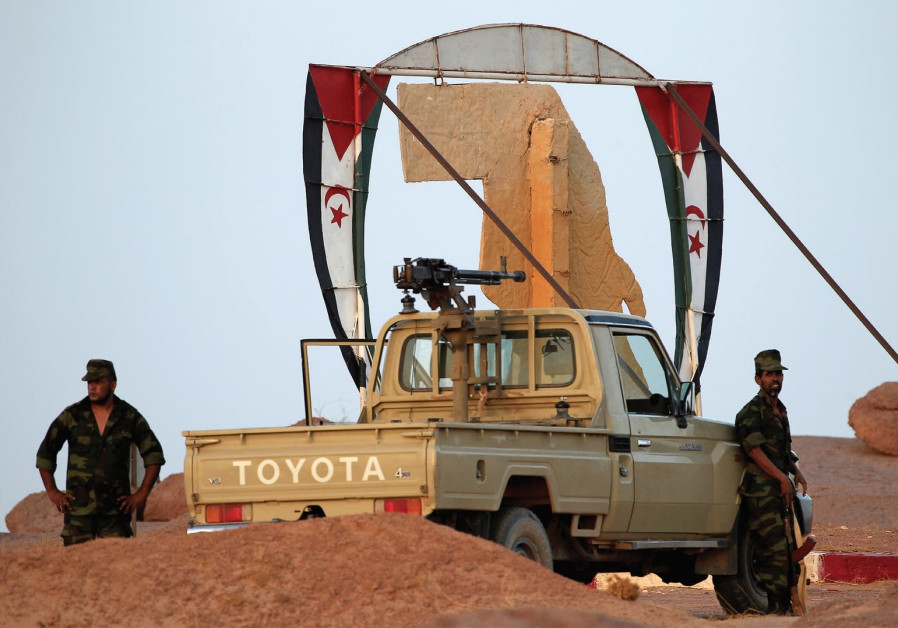Hezbollah accuses Morocco of caving into pressure

Polisario Front fighters at a checkpoint in Morocco. (photo credit: REUTERS)
Hezbollah has accused Morocco of caving into pressure from the US, Israel and Saudi Arabia after it cut ties with Iran over alleged weapons smuggling to the separatist Polisario front in neighboring Algeria.
On Tuesday night, Moroccan Foreign Minister Nasser Bourita told reporters that Rabat had obtained “verified proof” that Hezbollah had provided training, financial support to the Polisario front since 2016 and had sent weaponry to the group last month.
“Hezbollah sent [surface-to-air] SAM9, SAM11 and Strela missiles to the Polisario with the connivance of Iran’s embassy in Algiers,” he was quoted by local press as saying.
According to Bourita, Morocco’s ambassador in Iran had already left Tehran and the Iranian embassy in the Kingdom would be closed “immediately” in response to “Iran’s involvement, through Hezbollah, in allying itself with the Polisario over the past two years in order to target the security and higher interests of Morocco.”
Bourita, who announced the move after returning from Tehran, was quoted by The Washington Post as saying that he had met with Iran’s Minister of Foreign Affairs Mohammed Zarif and “presented him with all the reasons that induced this decision. I have showed him the dates, locations of meetings and the names involved.”
In response to recent developments, Iran’s Foreign Ministry spokesman Bahram Qassemi on Wednesday denied the claims made by Rabat, saying at a press conference in Tehran that they were unfounded and incorrect.
“Non-interference in other countries’ internal affairs is and will remain one of the most important principles of Iran foreign policy. Remarks attributed to the foreign minister of Morocco about cooperation between an Iranian diplomat and the Polisario Front in Western Sahara are false,” he was quoted by Iran’s Mehr news agency as saying.
Spain relinquished control of the Western Sahara in 1975 and claims to the territory led to Morocco and Polisario fighting for its control until 1991 when Rabat took control of 90% of the desert territory before a UN-brokered ceasefire.
Split in two with a UN mission monitoring the ceasefire, Morocco considers the Western Sahara as an integral part of its country and the Polisario Front insists on a UN referendum on it’s independence for the Sahrawi people.
According to the Polisario Front’s website “Hespress”, the Front’s spokesman Muhammad Haddad denied the accusations, saying “through these maneuvers and accusations, Rabat seeks to refrain from negotiation on the desert, which the United Nations has called for.”
Israeli officials have been concerned about the threat posed by Iran’s “Shiite crescent” which in addition to a worrisome land-bridge from Iran to Lebanon via Iraq and Syria, also includes Yemen where Houthi militias (supported by Tehran) having been fighting against the armies of Saudi Arabia and several Gulf countries.
The addition of Iran and Hezbollah’s presence in the North African country is an additional concern for Israel, which while it has not had any formal relations with Morocco since the Second Intifada in 2000 has many citizens visiting the Kingdom.
A senior Israeli diplomatic official on Tuesday stated that Iran’s influence in the Middle East has increased dramatically since the Iranian nuclear deal, known as the Joint Comprehensive Plan of Action.
“The lifting of the sanctions has allowed Iran to conquer the region,” he said.





Comments are closed.